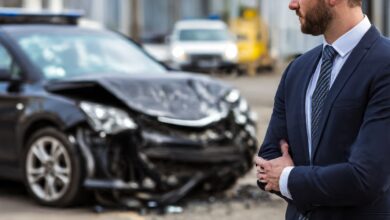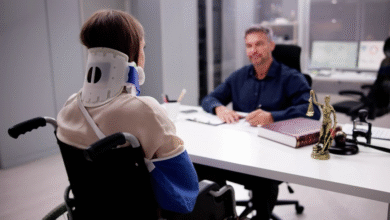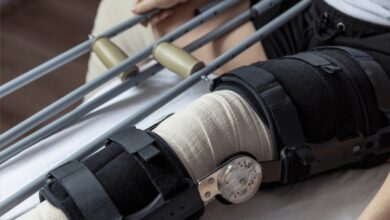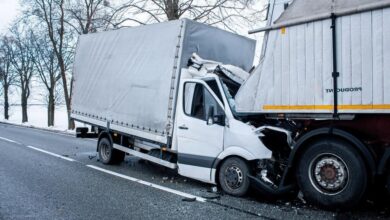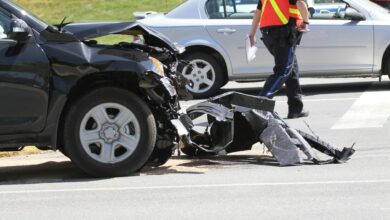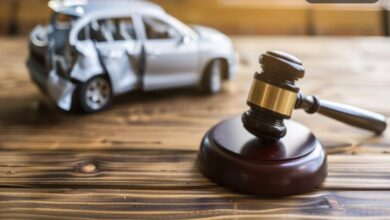Can You Hold a Car Liable for an Accident?

Technology has advanced in leaps and bounds in the last few decades. Supercomputers that used to take up entire rooms now fit comfortably in your pocket. Automotive technology is advancing too, sometimes faster than the law can keep up with. Self-driving cars, although not widely available, are being tested. Occasionally, accidents happen, and people get hurt. When this happens, injured victims and their attorneys might have trouble figuring out who should be held liable if there is no driver.
Legal claims for accidents with self-driving or autonomous vehicles are new, and there is little legal precedent to give guidance on the issue. While you probably cannot sue the car itself – at least not yet – you might have a case against the vehicle’s owner or manufacturer. You might even consider suing the developer of the vehicle’s self-driving technology. It is also important to note that not all self-driving cars are totally autonomous. Many require a “driver” to be in the vehicle and ready to take control if things go awry. While there is a big question mark over liability, it is not a question that cannot be answered.
Read More: Top 7 Advantages of Hiring a Car Accident Lawyer
Who is Liable for a Crash Involving a Self-Driving Vehicle?
In a typical car accident, the other driver would likely be liable. What about when there is no other driver? Can you hold the car liable? This is a novel legal issue that is currently unfolding. A car accident lawyer can help you broach this emerging legal issue.
The Vehicle’s Owner
Although many self-driving cars are not completely autonomous, many developers are working on cars that can navigate the road without anyone inside the vehicle. Suppose you are injured by a driverless car. Whom would you sue if nobody was behind the wheel?
The answer to this question is not set in stone, as driverless vehicles are still rare. However, if you are unlucky enough to be hit by a driverless car, you might be able to sue the vehicle’s owner, whoever that might be.
Since driverless vehicles are largely used by technology and automotive companies for testing purposes only, it is still a bit unusual to see one on the road. Even so, you might encounter one in the future, and the company that owns the vehicle might be liable for an accident.
The Vehicle’s Occupant
Many self-driving vehicles are not empty. Most autonomous vehicles being tested on the road have a “driver” ready to take control if something goes wrong. For example, you might see someone in the driver’s seat, but their hands are not on the wheel or their foot on the gas.
If an accident occurs because the test driver failed to take control when things were going awry, you and your attorney might have a strong argument to hold them liable for your damages.
On top of that, since test drivers often work as employees of a larger auto or tech company, you likely have a claim against the test driver’s employer.
The Manufacturer
Many accidents are caused by faulty, damaged, or defective vehicle parts rather than negligent driving, or in this case, negligent autonomous driving. For example, a driver might take all reasonable cautions on the road when suddenly their front tire blows out, and they crash into another car. The driver might not be at fault if the tire was defective when installed and there was no reasonable way for the driver to know.
The same idea might apply in accident cases involving self-driving cars. Even if self-driving technology and software work perfectly, the car must also be in working order to avoid a crash. If brakes fail, tires blow out, or other important parts of the car are defective, the manufacturer of those parts might be liable.
Suing car part manufacturers is nothing new. However, what happens when the vehicle is fine but the self-driving software is what malfunctions? In such a case, you and your attorney might approach the case like any other product liability claim. However, instead of suing over a defective physical part of the vehicle, you would sue for faulty computer programming.
The Driver’s Control Over an Autonomous Vehicle
Liability might be heavily influenced by the level of automation in the vehicle. Today, there is often some level of automation in many vehicles, not just self-driving ones. For example, the cruise control feature is a level of automation. Once cruise control is activated, the driver no longer controls the speed of their vehicle. However, they may resume control at any time.
Full automation in which the “driver” has no control over the vehicle is unusual. Such vehicles are not publicly available and might only be on the road for testing purposes. As such, most self-driving car accidents involve a “driver” in the vehicle.
Read More: 5 Helpful Resources for Car Accident Victims
Filing a Lawsuit for an Accident with an Autonomous Vehicle
You and your attorney might end up naming the vehicle’s operator, manufacturer, and even software developers in your lawsuit. Currently, there is no clear legal precedent or guidance regarding which parties are responsible for these kinds of accidents. As such, your best bet might be to name everyone and see what sticks and what doesn’t.
You should be prepared to face allegations of contributory negligence. Defendants might try to shift the blame back to the plaintiffs. Perhaps they will argue that you were speeding and contributed to the accident, thus reducing their liability. This is a likely tactic as companies do not want the public to think their self-driving cars are dangerous.
If you sue the manufacturer or technology developers, you might be up against large corporations with deep pockets and armies of attorneys. While many lawyers might be keen to get your case into court to try and set a legal precedent, you might have other ideas. Many injured plaintiffs simply want compensation to help them pay for their damages. A settlement might be a good option in that case.
If You Are Not Sure What to Do, Call a Lawyer
It is understandable to be unsure what to do after an accident with an autonomous vehicle. The prospect of going up against some giant tech company is intimidating. On top of that, a full trial might be very time-consuming and emotionally draining. Your best bet is to call a lawyer immediately and explain the situation. Accidents with self-driving cars are still uncommon, and your attorney can help you determine how to proceed.


